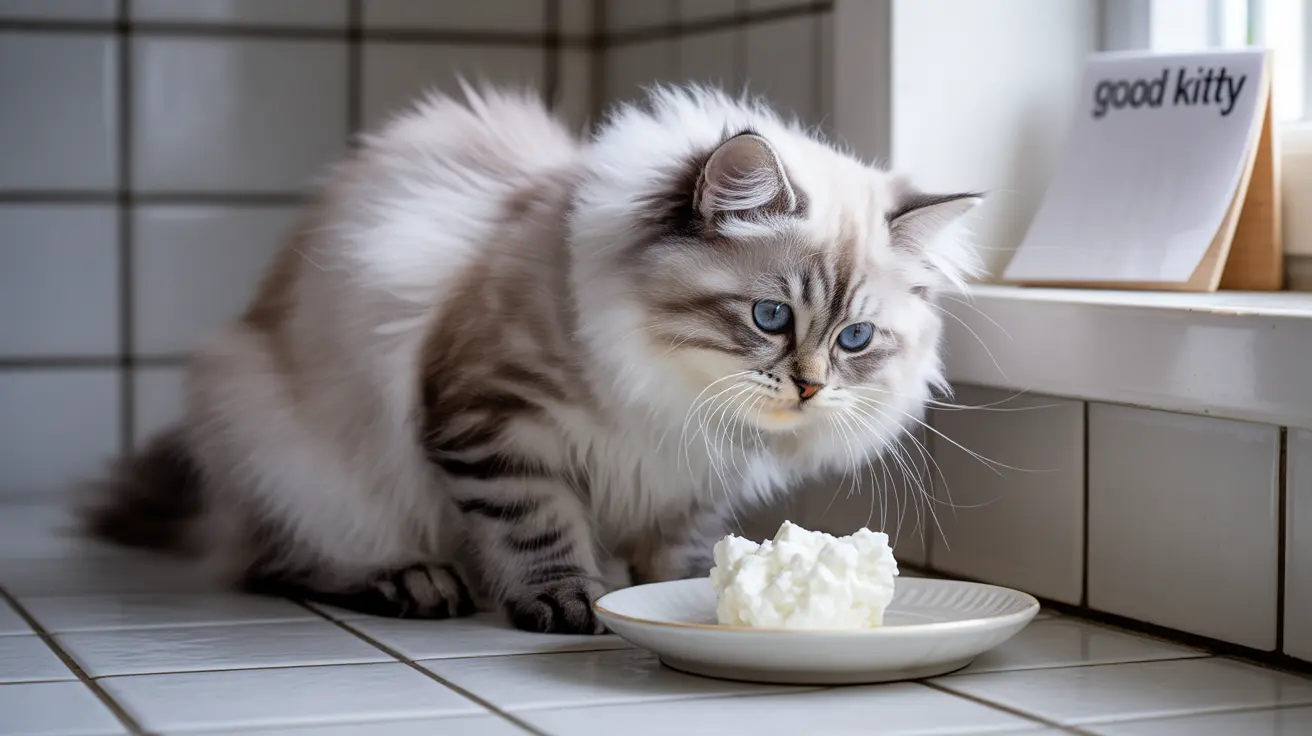Understanding Cats and Dairy Products
Despite popular beliefs and media portrayals, most adult cats are actually lactose intolerant. After weaning, cats lose significant amounts of the enzyme lactase, which is necessary to digest lactose in dairy products. This biological fact makes dairy consumption problematic for many felines.
However, cottage cheese contains less lactose than regular milk or cream, making it one of the more tolerable dairy options for cats who can handle small amounts of dairy products.
The Benefits and Risks of Cottage Cheese for Cats
Potential Benefits
Cottage cheese does offer some nutritional advantages when fed in moderation:
- High in protein content
- Contains calcium and essential B vitamins
- Lower lactose content compared to milk
- Can be useful for hiding medications
- May help stimulate appetite in sick cats
Potential Risks
Several risks are associated with feeding cottage cheese to cats:
- Digestive upset due to lactose intolerance
- High sodium content can be problematic
- Potential weight gain if overfed
- Risk of dehydration
- Possible allergic reactions
Safe Feeding Guidelines
If you decide to offer cottage cheese to your cat, follow these important guidelines:
- Start with a tiny amount (1/4 to 1/2 teaspoon)
- Monitor for any adverse reactions
- Only serve plain, unseasoned cottage cheese
- Limit treats to no more than 10% of daily caloric intake
- Never use cottage cheese as a meal replacement
Special Considerations for Different Cats
Some cats should avoid cottage cheese entirely, including:
- Cats with known dairy sensitivities
- Overweight or obese cats
- Cats with kidney problems
- Those with existing digestive issues
- Cats on special diets
Frequently Asked Questions
Can cats safely eat cottage cheese as a treat or to hide medication?
Yes, cats can safely eat small amounts of cottage cheese as an occasional treat or to hide medication. However, limit portions to 1/2 teaspoon or less and monitor for any digestive issues.
What are the signs of lactose intolerance in cats after eating cottage cheese?
Common signs include diarrhea, vomiting, gas, bloating, and abdominal discomfort. If you notice any of these symptoms, discontinue feeding cottage cheese immediately.
How much cottage cheese can I give my cat without causing digestive issues?
Start with no more than 1/4 to 1/2 teaspoon as an occasional treat. Some cats may tolerate slightly more, while others might show sensitivity to even small amounts.
Why is cottage cheese not ideal for a cat's regular diet despite being high in protein?
While cottage cheese contains protein, cats are obligate carnivores who require animal-based proteins. Additionally, the lactose content and high sodium levels make it unsuitable as a regular dietary component.
Are flavored or seasoned cottage cheese varieties harmful to cats?
Yes, flavored or seasoned cottage cheese varieties can be harmful or toxic to cats. Only plain, unseasoned cottage cheese should ever be offered to cats, as additives like garlic, onions, or artificial flavors can be dangerous.
Final Thoughts
While cottage cheese can be a safe occasional treat for cats who tolerate it well, it should never become a regular part of their diet. Always prioritize a balanced, species-appropriate diet based on high-quality cat food, and consult with your veterinarian before introducing any new foods to your cat's diet.
Remember that every cat is unique, and what works for one may not work for another. Pay attention to your cat's individual responses and always err on the side of caution when introducing new foods.






